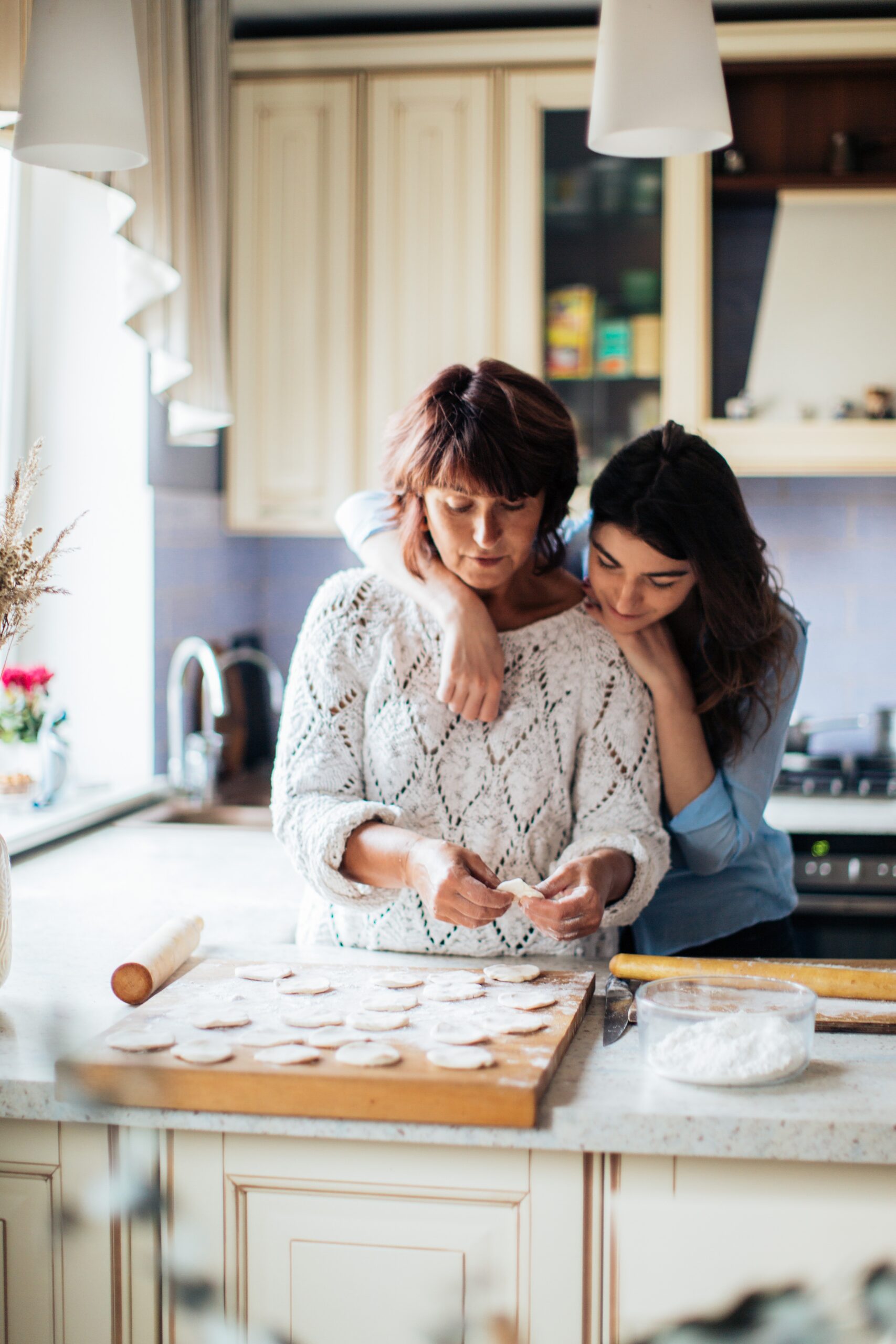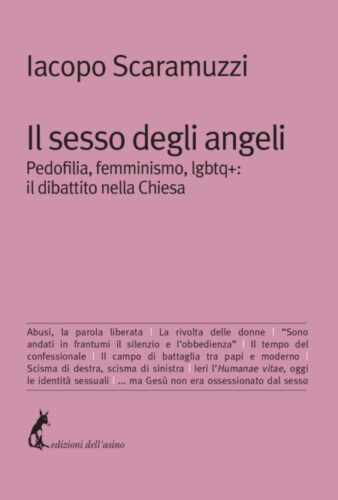As a Catholic parent of three adult LGBTQ children, I would love to tell you that my husband and I breezed through their “coming out” and subsequent journey with perfect clarity, wisdom, faith and love. But, nah, that didn’t happen.
We struggled, sometimes having more questions than answers. In the last few years, we have discovered many other Catholic parents like ourselves, eager to share their journeys and what they’ve learned about being a gay parent. So based on our family’s experience, and the experiences of fellow Catholic parents, I’d like to share five tips with you. No real names are used in this article, and some details have been left purposely vague to protect families that have not “come out” yet or wish to remain anonymous. I also have permission from our kids to share our journey.
1. Being a parent to gay children can be complicated and challenging
Our path began on January 26, 2014. To describe the first two months of that year as difficult and challenging would be an understatement. It was more like being picked up by a tornado and cast down in the middle of nowhere—shaken, bruised and trying to find your way home without GPS.
With each child, we told them we loved them all the way to their destiny, and would be there to support them.
Our middle child, Jett, a male at birth, was diagnosed with autism spectrum disorder and gender dysphoria at 14. Before we could even discuss the diagnosis with the psychologist, Jett attempted suicide. Through the expert care of a local children’s psychiatric hospital and a behavioral healthcare organization, Jett got better. After her treatment, we learned what was wrong.
Miserable, she believed that we were completely against her and that nothing would change. She was transgender and felt like she could not live as she had been. She wanted to be called by her new name, Neriah, which was fine by us. And she said she no longer believed in God and didn’t want to attend Mass, which was not fine by us, but we respected her wishes.
We still didn’t really comprehend what all this meant. We knew something about gender dysphoria, but we had no knowledge about what transgender meant, and our daughter had never spoken to us about any of this. Hormone replacement therapy and transitioning were also foreign topics to us. Neriah’s depression and anxiety medications did wonders for her, though, and after several months, she came to realize we loved and supported her.
A couple of years after that incident, our oldest son came out to us as gay. About a year after that, our youngest daughter came to me one day, looked me in the eyes and told me she was gay and had a girlfriend at the Catholic school they both attended. Our trans daughter chose to come back to the church. With each child, we told them we loved them all the way to their destiny, and would be there to support them.
2. Your child may never technically come out, or they may come out to only one parent
In our family, our youngest daughter came out to me, but not to my husband. She asked me to tell her father because she felt more comfortable that way.
A Catholic parent, Laura, told me about her experience. Two of her four children are gay. Her oldest came out to both parents but her daughter never officially came out. “She started dating women in college,” Laura explained. “After a while I asked her about it, but she got upset. She didn’t think I should be asking about who she was dating, so I let it go.”
3. It’s okay to have a grieving period for the life you had imagined for your child
Nick, another Catholic parent, tells the story of his daughter’s coming out to him and his wife. His daughter had dated a few boys in high school, the second one her senior year, but something seemed…different. “I did not see it as a regular relationship,” said Nick. “It was more like two friends who like to play games. Now that she’s told us, it’s like, ‘Ah, this makes a lot more sense,'” he said.
Sometimes, we would mess up. We always apologized so they understood we weren’t doing it on purpose—we were learning.
Nick felt it was only this one small detail that had changed between them, but not their love. Still, something was bothering him. He spoke to a friend who told Nick that he was clinging to the fantasy of the life he had imagined for his daughter. One where he’s hanging out in the backyard with his daughter’s husband, having a beer and watching the grandkids play.
Nick realized his friend was right. He needed to let go of what he thought her future should be and give himself time to adjust.
4. You can be Catholic and disagree. But be respectful
Cody and Mina are a young, married Catholic couple who very much wanted a family but were unable to have children. After prayer and deliberation, they felt called to become foster parents, particularly for teens who are often hard to place. When asked to foster two LGBTQ teens, they said yes.
Experienced with children on the autistic spectrum and with mental illness, Mina was confident they could provide a supportive, positive environment. “God is love, and I know the type of people Jesus was around,” Mina said.
“We had some good conversations with the kids and talked about how we didn’t need to agree on anything. However, we made a considerable effort to always use their chosen name and pronouns. Sometimes, we would mess up. We always apologized so they understood we weren’t doing it on purpose—we were learning. One of our foster daughters told us later that she felt honored and supported.”
Cody had a more difficult time with the teens. “I tried to be polite and supportive but at times it was difficult. I wasn’t comfortable with them using the dollars we gave them for chores being spent on binders.”
The Gospels offer no justification for abandoning or rejecting our children.
Others parents I spoke with affirmed that you don’t always have to agree. Zoey, the mother of three gay young adults, said her children don’t want definitions and boxes forced on them. “I asked Terry, who uses he/him pronouns, how he identified,” said Zoey. “He told me that he will not be defined by his gender or sexual orientation so prefers not to answer that question when asked.”
“I love the heck out of all my kids and their honesty and the way that have helped this 53-year-old cisgender female heterosexual mother grow more and more each day,” she said. “They are open about who they are and their ongoing self-discovery, and they are honest about how they feel about the Catholic Church and Christianity.” Zoey wonders if any of her kids will come back to church, but is conflicted on whether or not they should come back to a church that calls their orientation an “objective disorder.”
Vickie, who has a gay son, said, “I worried most about if I was going to deny my child to other people. What would I say if I felt they disagreed?” She remembers going to a party where the seating was arranged so that she wasn’t sitting next to her husband. The man next to her started asking questions. When the conversation got around to the city Vickie’s son lived in, he responded by saying her son must be gay.
Nailing him with a look, she answered “yes.” Surprised, the man said nothing after that.
5. Maintain the relationship with your children. Stay connected.
Faye and her husband have three adult daughters, one who came out recently.
“One thing that is very difficult for parents, especially when their children become adults, is to accept that their children’s lives belong to them and not to us,” she told me. “Even if we disagree with our children’s choices, even if we think that they may be harming themselves, the more important value is and always must be connection: ‘Above all, clothe yourselves with love, which binds everything together in perfect harmony’ (Col. 3:14). The Gospels offer no justification for abandoning or rejecting our children.”
Faye gave a final piece of helpful advice, which is a good place to end. “More than anything,” she said, “we need to recognize that the Gospel calls us to personal conversion and that everything that happens in our own experience is a call and an opportunity for us to conform our own selves more closely to Christ’s love. Christ does not call us to correct others but to love them. And if we should ever betray our children, we need to go to them, ask their forgiveness and tell them that we love them.”
The article was originally published May 19, 2023.




